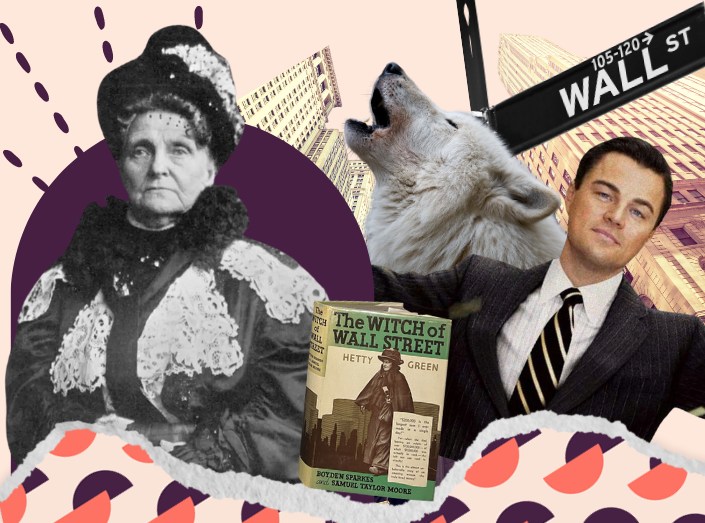How we talk about men and women can reveal deep biases that shape perceptions, opportunities, and confidence. Let’s look at the stark contrast between Hetty Green, the "Witch of Wall Street," and Jordan Belfort, the "Wolf of Wall Street." These labels aren't just names—they reflect societal attitudes and influence how we shape our money mindset.

Hetty Green: The Not-So-Wicked Witch of Wall Street
Hetty Green, a financial powerhouse in the 19th century, was branded the "Witch of Wall Street." The term "witch" implies deceit and malevolence, highlighting society's discomfort and scepticism with a woman wielding significant financial power. On the other hand, male financiers were called "tycoons" or "moguls," terms that convey respect and admiration. This difference in language shows the gender bias at play during that era and today..
Jordan Belfort: A Modern-Day Legend of Wall Street
Jordan Belfort, infamous for his fraudulent activities, is known as the "Wolf of Wall Street." The term "wolf" suggests cunning and strength—traits often admired in business. Despite his crimes, his story, brought to life by the hit film, is portrayed with fascination and excitement, emphasizing his charisma and daring entrepreneurial spirit. This sharp contrast to Green’s nickname highlights how gender dramatically influences the perception of similar traits in men and women.

Double Standards –Taylor Swift's Take:
This issue isn't just confined to the finance world. In a conversation with CBS Sunday Morning, Swift explained how she faced criticism for writing about her personal life, especially her love life, in her songs. She called out the double standards, noting, “There’s a different vocabulary for men and women. A man does something, it’s ‘strategic’; a woman does the same thing, it’s ‘calculated.’ A man ‘reacts’; a woman ‘over-reacts.’ A man ‘stands up for himself’; a woman ‘throws a temper tantrum.’”
These differences show how gendered language can undermine women's actions and achievements while casting men’s similar behaviors in a positive light.

How We Talk Shapes How We Think
Language plays a huge role in shaping how we see ourselves and others. The American Psychological Association found that women are less likely to use assertive language compared to men, affecting their leadership aspirations, negotiation skills, and career advancement.
A McKinsey & Company report shows that women are also less likely to be promoted to managerial roles, partly because of biased language and stereotypes. These linguistic biases create a cycle where women in finance feel less confident, take fewer risks, and are less likely to be seen as leaders.This isn't just talk—it has real consequences for women's representation in top financial roles.
Break the Bias: Stop the SHE!
To create a fairer financial world, we need to tackle these linguistic disparities. Here’s how we can make a difference:
- Use gender-neutral and positive descriptors for success in finance.
- Celebrate female leaders without resorting to stereotypes or diminutive language. (no mumprenuers, or SHEOs!)
- Promote awareness and training on the impact of language and unconscious bias.
The stories of Hetty Green and Jordan Belfort, along with Taylor Swift’s observations, highlight the stark contrast in how society views men and women. By addressing these linguistic biases, we can foster a more inclusive and confident generation of leaders, ensuring that success is determined by talent and ability rather than gender.
***
Want to see how the language you use can impact your money mindset and financial situation?
Head to module one in our Money School via our VIP Subscription today
